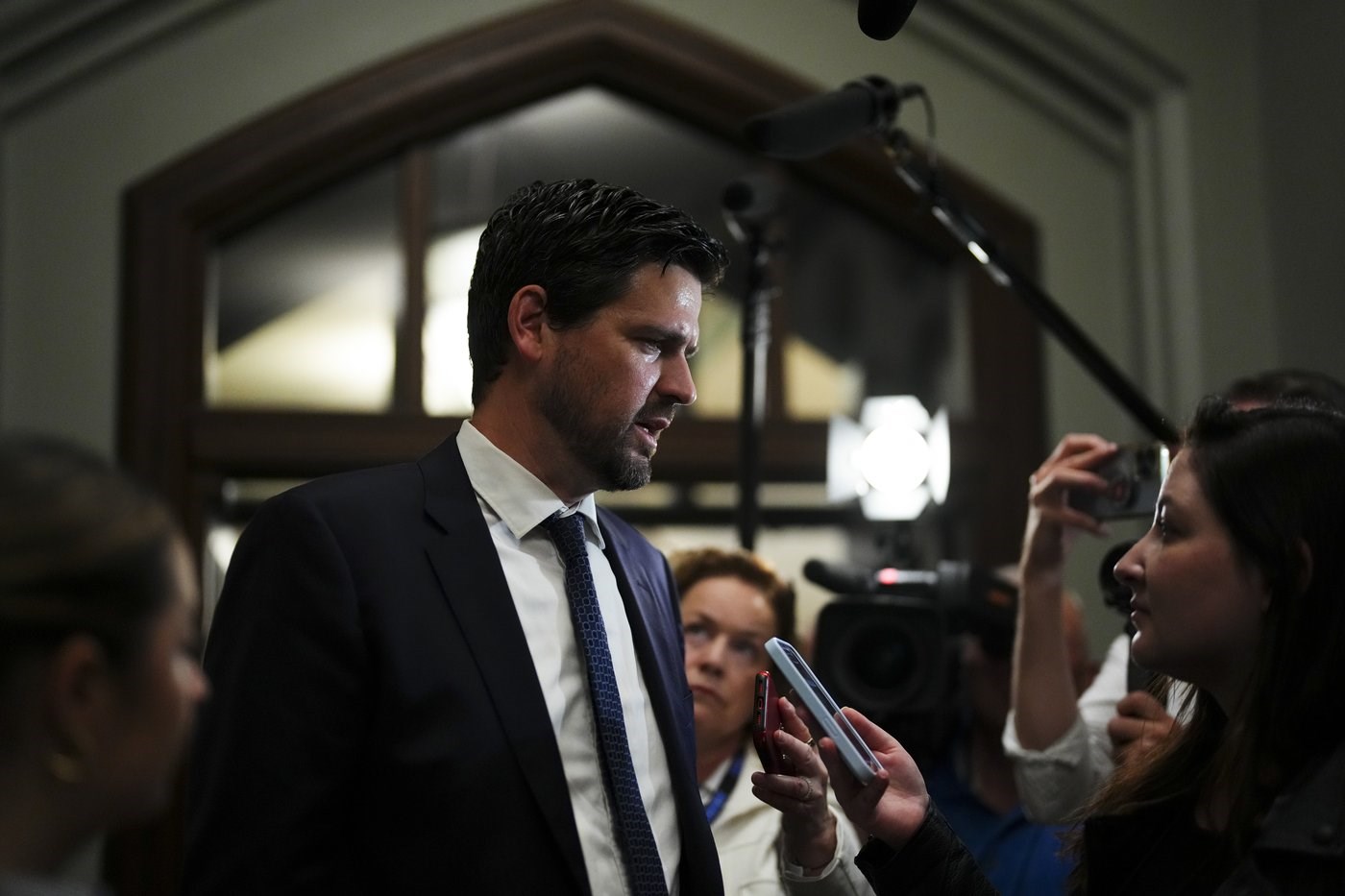
Minister of Justice Sean Fraser arrives for a cabinet meeting on Parliament Hill in Ottawa on Tuesday, June 3, 2025. THE CANADIAN PRESS/Sean Kilpatrick
Republished June 04, 2025 - 12:17 PM
Original Publication Date June 04, 2025 - 7:36 AM
OTTAWA — Justice Minister Sean Fraser apologized Wednesday for comments he made about the government's duty to consult with Indigenous leaders on major projects.
Fraser said Tuesday that the UN Declaration on the Rights of Indigenous Peoples requires consultation but does not amount to "a blanket veto power" over projects. Similar language asserting UNDRIP does not convey a veto is used in federal government documents about the declaration.
Speaking to reporters Wednesday, Fraser said Assembly of First Nations National Chief Cindy Woodhouse Nepinak called him Tuesday night to express her frustration with his comments, and he apologized.
"Despite innocent intentions, I think my comments actually caused hurt and potentially eroded a very precarious trust that has been built up over many years to respect the rights of Indigenous people in this country," Fraser said.
"I’ve come into a position that I think is essential in the process of respecting the rights of Indigenous Peoples and I wanted to make sure that just not Chief Woodhouse but Indigenous leaders, Indigenous Peoples across this country know that my desire and the government of Canada’s desire is to move forward on a relationship."
Woodhouse Nepinak said it's "disheartening" when politicians make such comments and the government has made a series of missteps since her Thursday meeting with Prime Minister Mark Carney.
"When the prime minister's trying to start a relationship with First Nations in a good way, it's disheartening when comments are made later, twice now actually this week," she said, citing Crown-Indigenous Relations Minister Rebecca Alty saying that work to fill the First Nations infrastructure gap won't qualify for Ottawa’s push to fast-track what it calls “nation-building” projects.
Woodhouse Nepinak said she was then taken aback by Fraser's comment.
"He called to apologize," she said. "He needs to apologize to First Nations for those comments."
The UN declaration, which Canada adopted, requires free, prior and informed consent from Indigenous Peoples on matters affecting their rights, lands, territories and resources.
The federal government says that declaration does not amount to a "veto," but Indigenous leaders have long called for changes to how it approaches the duty to consult.
Indigenous Peoples also have distinct rights enshrined in the Constitution, along with treaty and inherent rights.
Fraser said talking about the declaration in terms of veto power assumes that the federal government and Indigenous people are working against each another.
"In my experience engaging with Indigenous leaders, their perspective is one of wanting to have their rights respected and wanting to share in the benefits of development," Fraser said.
"So, as we go forward, whether it’s on the major projects initiative we’ll be working on or any issue that touches on the rights of Indigenous Peoples, I want to be absolutely clear that our desire is to work in partnership and at every stage of the process, from project selection to conditions that may be imposed. We’re going to engage, properly consult and work in partnership to respect the rights of Indigenous Peoples."
Fraser's remarks come as First Nations leaders mount opposition to the push by the federal and provincial governments to fast-track what they call "nation-building" projects in response to increased uncertainty in the Canada-U.S. trading relationship.
Indigenous leaders say they haven't been properly consulted on provincial plans. They've warned Ottawa that widespread protests and blockades are possible if they are not meaningfully consulted on federal legislation to speed up approvals of major infrastructure projects.
Tabatha Bull, the president and CEO of the Canadian Council for Indigenous Businesses, told an audience at the Canadian Club of Toronto on Wednesday that they're seeing policies that "might push us backwards."
"We need corporate Canada to stand up and be accomplices and say these projects aren't going to go faster without Indigenous partnerships, and they need to be at the table with us in talking to the government," she said.
This report by The Canadian Press was first published June 4, 2025.
News from © The Canadian Press, 2025